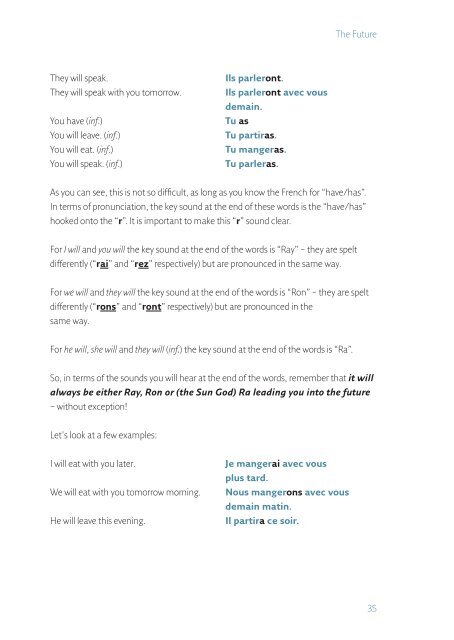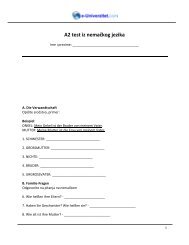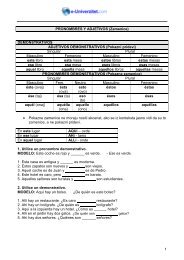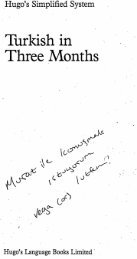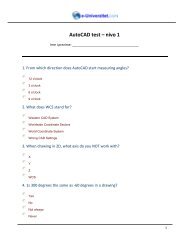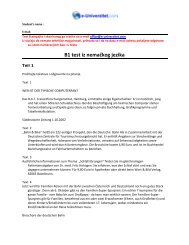Collins Paul Noble French booklet.pdf - Centar za edukaciju i ...
Collins Paul Noble French booklet.pdf - Centar za edukaciju i ...
Collins Paul Noble French booklet.pdf - Centar za edukaciju i ...
You also want an ePaper? Increase the reach of your titles
YUMPU automatically turns print PDFs into web optimized ePapers that Google loves.
They will speak. Ils parleront.<br />
They will speak with you tomorrow. Ils parleront avec vous<br />
demain.<br />
You have (inf.) Tu as<br />
You will leave. (inf.) Tu partiras.<br />
You will eat. (inf.) Tu mangeras.<br />
You will speak. (inf.) Tu parleras.<br />
The Future<br />
As you can see, this is not so diffi cult, as long as you know the <strong>French</strong> for “have/has”.<br />
In terms of pronunciation, the key sound at the end of these words is the “have/has”<br />
hooked onto the “r”. It is important to make this “r” sound clear.<br />
For I will and you will the key sound at the end of the words is “Ray” – they are spelt<br />
differently (“rai” and “rez” respectively) but are pronounced in the same way.<br />
For we will and they will the key sound at the end of the words is “Ron” – they are spelt<br />
differently (“rons” and “ront” respectively) but are pronounced in the<br />
same way.<br />
For he will, she will and they will (inf.) the key sound at the end of the words is “Ra”.<br />
So, in terms of the sounds you will hear at the end of the words, remember that it will<br />
always be either Ray, Ron or (the Sun God) Ra leading you into the future<br />
– without exception!<br />
Let’s look at a few examples:<br />
I will eat with you later. Je mangerai avec vous<br />
plus tard.<br />
We will eat with you tomorrow morning. Nous mangerons avec vous<br />
demain matin.<br />
He will leave this evening. Il partira ce soir.<br />
35


